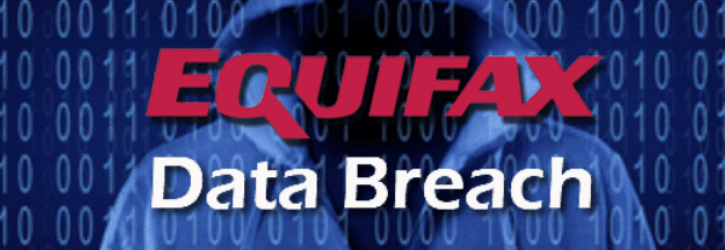
Welcome To The Data Leak Lawyers Blog
We focus on the latest news surrounding data breaches, leaks and hacks plus daily internet security articles.

We focus on the latest news surrounding data breaches, leaks and hacks plus daily internet security articles.

Concerns have been raised over the quality of Lancashire County Council data protection measures after a spate of breaches occurred in a period of a few months.
Council data breach claims are common. Our Data Leak Lawyers represent a lot of victims claiming for council data protection issues because of how often these incidents can occur.
According to recent figures, Lancashire County Council data protection measures are in need of improvement. This has come after a significant number of breaches occurred over a three-month period, of which some were referred to the ICO (Information Commissioner’s office).

A number of individuals have contacted us with concerns about the Facebook data breach incidents that have come to light.
If you’ve been affected by a Facebook data breach, our team may be able to help with a claim for compensation.
From the recent private messages hack, to the infamous Cambridge Analytica data breach, Facebook appears to have a lot to answer for. If you’ve been affected by a data breach as a Facebook user, you may be entitled to damages. You should contact our team for help and advice today. It’s no-obligation, and No Win, No Fee representation.

Lloyds Banking Group have announced that card replacement are being issued to customers affected by the Ticketmaster and British Airways data breaches.
The Data Leak Lawyers – representing victims in over 20 different data breach actions – are fighting for the rights of victims in both these breaches. The news that Lloyds is issuing replacement cards after the data breaches comes as no surprise. With victims of both data breach incidents at immediate risk of fraud, people need protection.
There’s so much more victims can do in terms of justice for both breaches. We launched our group actions for both the British Airways data breach and the Ticketmaster data breach as soon as news broke of the incidents.

The way forward for justice for the victims of the Equifax cyber attack is with legal action against the credit referencing giants.
We launched our legal action for justice last year when news of the huge cyber attack hit the press. We’re now acting for a large group of victims claiming compensation for the cyber attack. With the punishments issued to Equifax being somewhat small so far, victims should know that they are entitled to justice through our legal action.
If you’ve yet to join the legal action, sign up now. This really is the way forward to ensure justice is served!

The massive November 2016 Tesco data breach has led to a ground-breaking fine issued in the sum of £16.4m.
The fine has been issued by the Financial Conduct Authority (FCA). It’s understood that this is the first time that the FCA has issued a fine for an online fraud incident.
The level of the fine is thought to reflect the severity of the Tesco data breach. This was an avoidable incident that arose from Tesco’s lax security. The incident led to customers of Tesco Bank losing millions of pounds in stolen funds.

The news that the British Airways data theft compensation action is set to widen as more victims were affected than first thought was worrying.
Whether you’re a victim of the August to September breach, or the latest news of the April to July Reward Customers breach, we can help. As soon as news broke of the BA data theft incident, we started our legal action and have been taking on cases ever since.
If you have yet to sign up for British Airways data theft compensation, or if you’ve just found out you’re affected by the latest breach news, get in touch for help today.

The British Airways data breach class action is set to widen on news that the number of victims may be more than originally thought.
An additional 185,000 customers may also have been affected by the British Airways data breach that was revealed last month. The 15-day cyber-attack has compromised the details of hundreds of thousands of payment cards.
We’re acting for a number of victims who have been affected by the British Airways data breach. The class action may well widen if the additional victims are verified as affected.

The Cleveland Police data breach was another example of a preventable public sector data breach that should never have happened in the first place.
As a result of what’s being classed as a “human error” incident, the personal details of 1,661 people were leaked online. As part of the police’s procedures for disclosing data about “use of force”, information was put online that was accidentally not redacted. What should have been generic information about people who had been restrained by the police between April and June this year instead disclosed far more information.
Anyone affected by the Cleveland Police data breach may be eligible to pursue legal action.

Want to know more about your Equifax data breach claim? Need more info about the action we launched last year? Unsure if you’ll win your case?
Importantly, if you were affected by the Equifax data breach, you should be able to join our action. You can read more about the legal action we launched last year here.
In terms of more about how the claim works, you can visit the claim information page here. We have already launched the legal action, bit it’s not too late to join if you haven’t signed-up already. We’re confident we can win the case as well.

Former GP Dr Thair Altaii was found guilty of voyeurism at Newcastle Crown Court earlier this year. Over 19,000 images of women were found in his possession.
The 55-year-old former “trusted family doctor” was caught with the images and video footage after a patient raised concerns about being recorded. During her appointment, she’d noticed two mobile phones propped up; one facing a chair, and the other facing the examination table. Police were informed, and after Dr Altaii initially denied having any such material in his possession after arrest, a shocking discovery was later found when his laptop was seized.
Here, we’ll look at this in terms of legal advice for a data protection claim.
EasyJet admits data of nine million hacked
British Airways data breach: How to claim up to £6,000 compensation
Are you owed £5,000 for the Virgin Media data breach?
Virgin Media faces £4.5 BILLION in compensation payouts
BA customers given final deadline to claim compensation for data breach
Shoppers slam Morrisons after loyalty points stolen
Half a million customers can sue BA over huge data breach
Lawyers accuse BA of 'swerving responsibility' for data breach
The biggest data breaches of 2020
Fill out our quick call back form below and we'll contact you when you're ready to talk to us.